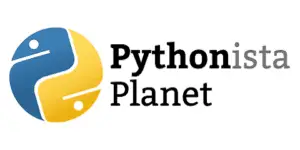Hello World Program
object HelloWorld {
def main(args: Array[String]): Unit = {
println("Hello, World!")
}
}Output:

Variables
Mutable:
object Main {
def main(args: Array[String]): Unit = {
var x = 100;
x = 150;
println(x);
}
}Output:

Immutable:
object Main {
def main(args: Array[String]): Unit = {
val x = 100;
x = 150;
println(x);
}
}
// This code will give an error because the variable is immutableOutput:

Mentioning data types along with variables:
object Main {
def main(args: Array[String]): Unit = {
var x: Int = 100;
x = 150;
println(x);
}
}Output:

Reading Input From the Console in Scala
object Main {
def main(args: Array[String]): Unit = {
var myName = scala.io.StdIn.readLine()
var myNumber = scala.io.StdIn.readLine().trim.toInt
println(myName, myNumber)
}
}Output:

Conditional Statements
If-Else statements:
object Main {
def main(args: Array[String]): Unit = {
var x: Int = 100;
if(x>80){
println("x is greater than 80")
} else if(x==80){
println("x is equal to 80")
} else{
println("x is less than 80")
}
}
}Output:

Match-case Statements (Pattern Matching):
object Main {
def main(args: Array[String]): Unit = {
var x: Int = 1;
x match{
case 1 => println("x is 1")
case 2 => println("x is 2")
case 3 => println("x is 3")
}
}
}Output:

Loops
While Loop:
object Main {
def main(args: Array[String]): Unit = {
var x: Int = 1;
while(x<=5){
println(x);
x = x+1;
}
}
}Output:

For Loop:
object Main {
def main(args: Array[String]): Unit = {
for(i <- 1 to 10){
println(i)
}
}
}Output:

For loop – using until:
object Main {
def main(args: Array[String]): Unit = {
for(i <- 1 until 10){
println(i)
}
}
}Output:

Breaking a loop in scala:
import scala.util.control.Breaks._
object Main {
def main(args: Array[String]): Unit = {
breakable{
for(i <- 1 until 10){
if(i==5){
break
}
println(i)
}
}
}
}Output:

String interpolation in Scala
object Main {
def main(args: Array[String]): Unit = {
var name = "John";
var age = 23;
println(name + " is " + age + " years old")
//s-type
println(s"$name is $age years old")
//f-type
println(f"$name%s is $age%d years old")
//raw-type
println(raw"Hello \n World")
}
}Output:

Functions in Scala
object Main {
def main(args: Array[String]): Unit = {
def addNumbers(x:Int, y:Int): Int ={
return x+y
}
println(addNumbers(5,3))
}
}Unit means that the function doesn’t return anything.
Output:

Anonymous functions
object Main {
def main(args: Array[String]): Unit = {
var add = (x:Int,y:Int) => x+y;
println(add(51,13));
}
}Output:

Higher Order functions
object Main {
def main(args: Array[String]): Unit = {
def math(x:Int,y:Int,f:(Int,Int)=>Int):Int = f(x,y);
//addition
val result1 = math(50,20,(x,y)=>x+y);
println(result1);
//subtraction
val result2 = math(50,20,(x,y)=>x-y);
println(result2);
}
}Output:

Function literals
object Main {
def main(args: Array[String]): Unit = {
var sum = (x:Int,y:Int) => x+y;
println(sum(3,5))
}
}Output:

Partially applied functions
object Main {
def main(args: Array[String]): Unit = {
val sum = (a:Int, b:Int, c:Int) => a+b+c;
val f = sum(10,20,_:Int);
println(f(100));;
}
}Output:

Arrays
object Main {
def main(args: Array[String]): Unit = {
// Defining an array
var myArray = new Array[Int](5);
// Defining an array with data type
var myArray2:Array[Int] = new Array[Int](5);
// Initializing values
var myArray3 = Array(1,2,3,4,5)
// Accessing elements
println(myArray3(0))
// Looping
for(i <- myArray3){
println(i)
}
}
}Output:

Lists
import scala.collection.immutable._
object Main {
def main(args: Array[String]): Unit = {
// Initializing values
var myList = List(1,8,5,6,9)
// Accessing elements
println(myList)
// Looping
for(i <- myList){
println(i)
}
}
}Output:

Sets
import scala.collection.immutable._
object Main {
def main(args: Array[String]): Unit = {
// Initializing values
val games = Set("Cricket","Football","Hocky","Golf")
// Accessing elements
println(games)
// Looping
for(i <- games){
println(i)
}
}
}Output:

Maps
object Main {
def main(args: Array[String]): Unit = {
// Creating an empty map
var exampleMap = scala.collection.mutable.Map[String,Int]()
// Creating a Map by initializing values
var myMap = Map("A"->"Apple","B"->"Ball")
// Accessing elements
println(myMap)
println(myMap("A"))
// Adding & deleting values
myMap += "C" -> "Cat"
myMap -= "B"
// Looping
for((i,j) <- myMap){
println(i,j)
}
}
}Output:


